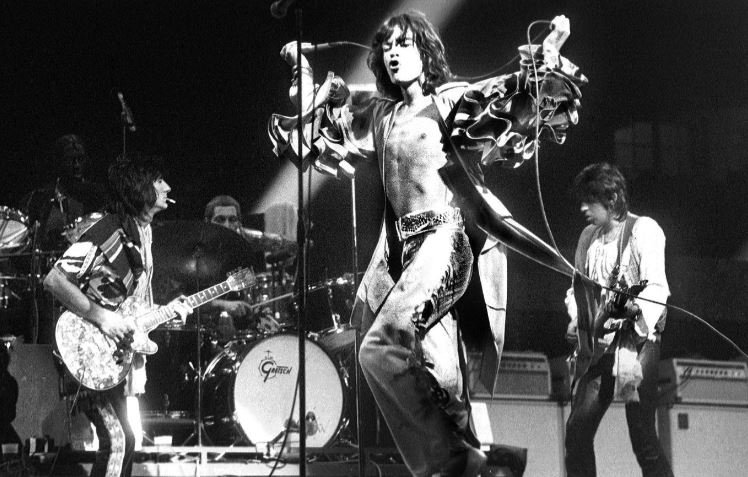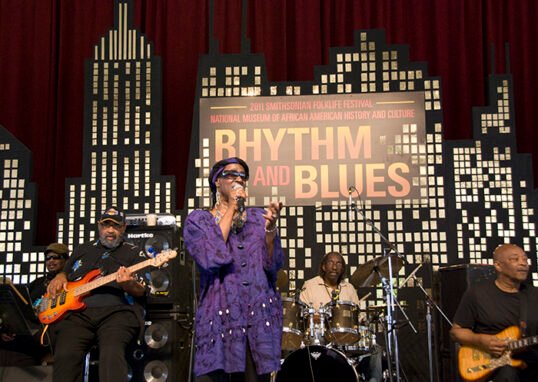
The roots of rock music with the blues, a genre that emerged in the African American communities of the Deep South in the late 19th and early 20th centuries. The influence of blues on rock is undeniable, shaping its rhythms, melodies, and emotional intensity. Here’s a look at how blues music has profoundly impacted the development and evolution of rock.

The Origins of Blues and Its Characteristics
Firstly, blues music originated from the work songs, spirituals, and field hollers of African American slaves. Characterized by its 12-bar structure, blue notes, and call-and-response patterns, blues music expressed themes of hardship, sorrow, and resilience. Artists like Robert Johnson, Bessie Smith, and Muddy Waters laid the groundwork for what would become a major influence on rock music.
Blues’ Impact on Early Rock ‘n’ Roll
Moreover, the transition from blues to rock ‘n’ roll in the 1950s was marked by artists who fused blues elements with faster tempos and electrified sounds. Pioneers like Chuck Berry, Little Richard, and Elvis Presley drew heavily from blues traditions. Chuck Berry’s guitar riffs and lyrical storytelling, for instance, were rooted in blues, but with an added energy that appealed to a broader audience. This fusion helped establish the foundation of rock music.
The British Blues Boom
Additionally, the 1960s saw the rise of the British Blues Boom, where UK bands were inspired by American blues artists. Bands like The Rolling Stones, The Yardbirds, and Cream paid homage to blues while developing their own distinct sounds. The Rolling Stones’ early recordings were heavily influence by Muddy Waters and Howlin’ Wolf, and their commitment to the blues tradition helpes introduce these American artists to new audiences.
Blues Rock: A New Subgenre
Furthermore, blues rock emerged as a prominent subgenre in the late 1960s and early 1970s, blending the raw emotion of blues with the power of rock. Artists like Jimi Hendrix, Eric Clapton, and Led Zeppelin epitomized this fusion. Hendrix’s virtuosic guitar playing and Clapton’s soulful solos drew directly from blues techniques, yet their performances were infuse with the intensity and volume of rock. Led Zeppelin’s “Since I’ve Been Loving You” is a prime example of blues rock, combining heartfelt blues with hard rock elements.
Blues Influence on Rock’s Evolution
Moreover, as rock music evolved, the blues continued to influence various subgenres. Southern rock bands like Lynyrd Skynyrd and The Allman Brothers Band incorporated blues into their sound, creating a fusion that celebrated Southern heritage. In the 1980s and 1990s, blues elements persisted in the work of rock artists like Stevie Ray Vaughan and The Black Crowes, who kept the blues spirit alive in contemporary rock music.
Modern Rock and the Blues Legacy
Additionally, the legacy of blues in modern rock is evident in the continued popularity of blues-influenced artists. Bands like The White Stripes, The Black Keys, and Gary Clark Jr. have revitalized the blues rock genre, blending traditional blues elements with modern sensibilities. These artists demonstrate that the emotional depth and musical simplicity of blues continue to resonate with new generations of rock fans.
Blues Techniques in Rock Guitar Playing
Furthermore, blues techniques remain a cornerstone of rock guitar playing. The use of pentatonic scales, bending notes, and vibrato are staples in rock guitar solos, all derived from blues traditions. Guitarists like Jimmy Page, Jeff Beck, and Keith Richards have all acknowledged the profound impact of blues on their playing styles, highlighting the enduring connection between the two genres.
Conclusion
In conclusion, the influence of blues on rock music is profound and far-reaching. From its early roots in the work songs of African American slaves to its impact on modern rock subgenres, the blues has shaped rock’s rhythm, structure, and emotional depth. The ongoing legacy of blues in rock music underscores its foundational role in the genre’s development and its timeless appeal. Whether through the soulful solos of classic rock or the raw energy of modern blues rock, the blues continues to be a vital and influential force in the world of rock music.






